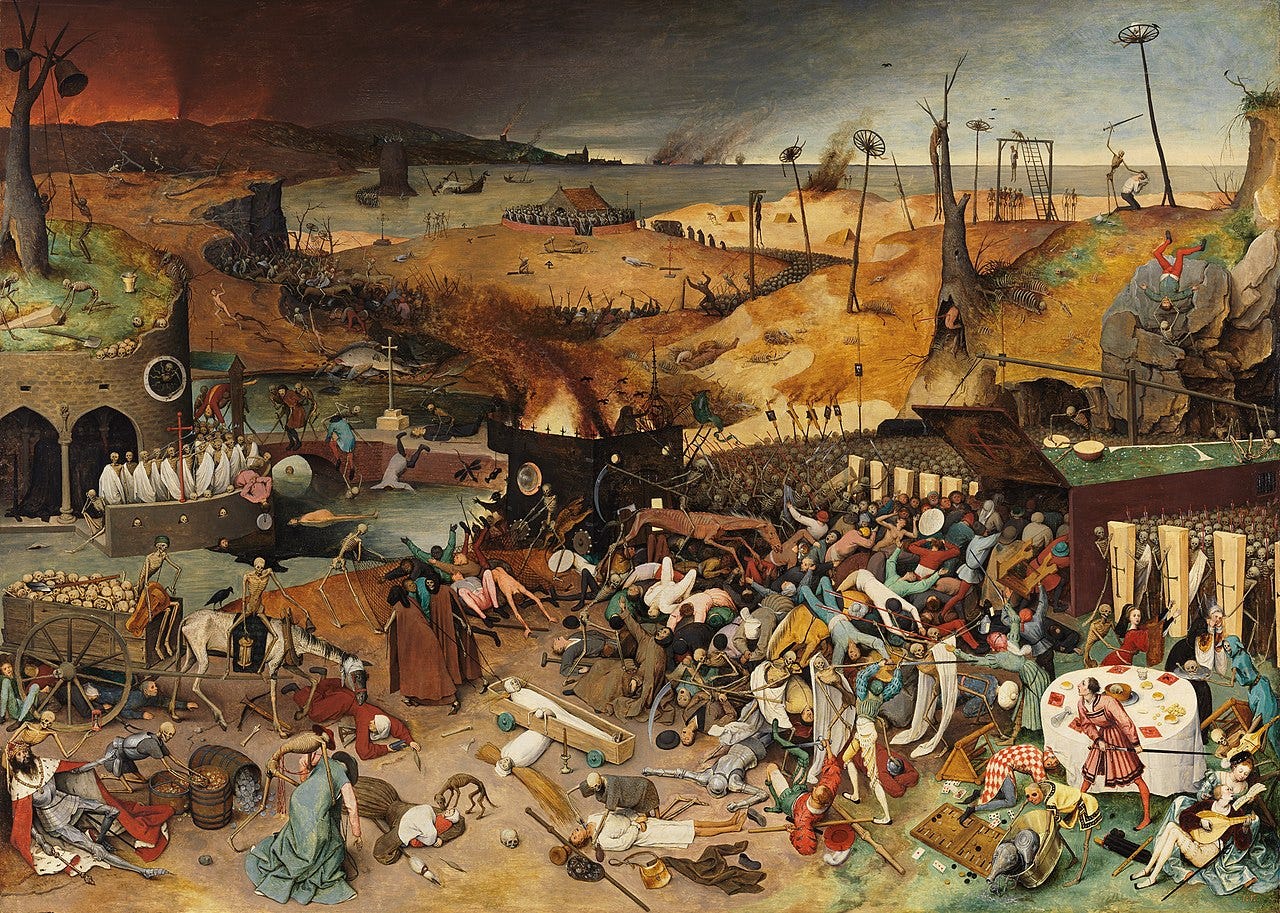Plague, disasters, and war

I’ve managed over the years to find threads of family going back to medieval nobility. Not everyone can accomplish this, though most Americans whose ancestors originally came from the UK are likely related in some way to a once noble family (as they had the means to survive and travel). One reason would be a lack of record-keeping, another would be a loss of information.
Finding records for anyone from the medieval period means they had social standing, money, power, or all three. Only the important people were worth keeping records of, though sometimes a person was mentioned as an aside in the records of important people rather than being important themselves. Sometimes being power or money-adjacent was enough.
Tracing family back to 17th century England and earlier runs into its fair share of natural disasters. In recent history, there was the blitz – the bombing of London during WWII. This destroyed so much of the city that stating what remained is easier than noting what was destroyed. The bombs didn’t spare churches, graveyards, or historical buildings. Many of these structures had been rebuilt after, or even survived, the Great Fire of 1666. A century before that was the destruction of monasteries and churches by Henry VIII, starting the wars between Protestantism and Catholicism that still mar parts of the UK. Many of the churches where our ancestors are buried or had memorials are no longer there – in my own tree I know of at least two burials that are now under shopping complexes. Another ancestor of mine, William Lovelace, had been buried at Canterbury Cathedral in 1577, but his lead coffin was somehow unexpectedly unearthed during renovations in the 18th century because his marker had been previously covered by the wood floor. (He’s now supposedly resting in the Cathedral’s Treasury.)
The plague was blamed for a lot of deaths in the medieval period and many diseases and disorders were attributed to it – but the actual Black Death did ravage England in the 14th century (and continued throughout Europe into the 18th century). The sheer number of deaths created a vacuum among the middle class, allowing the lower classes to buy their way in simply by claiming the land they worked and no longer had a master. One benefit of this was that the person then gained a foothold as an important person and elevated their family. An example in my tree (from My Lineage from the Roots Up, vol. 2, publication due in 2023) is the Lovelace family that moved into Bethersden as unknowns. Buying the manor, the family held the status of yeoman – landowners who worked the land instead of working for someone else as serfs. They could then earn enough money and social favor to be Gentleman, which would open the doors to being government officials and nobility (the English predecessor to politicians). Yeoman also worked for the nobility, sometimes making their way into the service of the Royal family, of whom meticulous records were kept.
Similarly, the destruction of the monasteries paved the way for families to buy (and/or steal) real estate to further build up their social standing. Anthony Aucher (d. 1557) from my tree is one such man – he was an advocate of the destruction of the monasteries and bought up a lot of the former chantry land in Kent. He then had the means to build a mansion at the family seat of Otterden, which passed through the family via gavelkind - generations of the family had already been buried in the church and held knights fees, but he turned the tide in their status. (And as fickle as time and standing are, Otterden was sold by his granddaughter’s husband.)
Knights fees were part of the feudal system in medieval England. It was the offering of military service to the landowner in return for being allowed to live and work the land. It was generally measured in hides (how much to support a knight on the plot, 1 hide = 120 acres). The nobility or Crown were “paid the fees”. This allowed the Earls and Barons to build armies to serve the Crown (or their own interests against the Crown). This is most certainly an oversimplification as there was political, religious, and economic nuance to the entire structure.
This is but a short description of how noone could become someone and have surviving records - or be someone and no longer have surviving records to prove descendents. War and disasters are not unique to England. For any region where you may be looking for records - look into the history as well.



